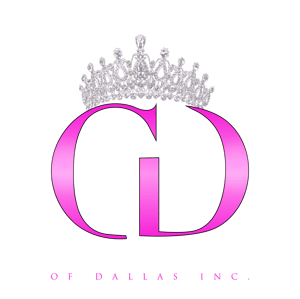Your dream home. A nice car. A stress-free life. If you have not achieved financial security, you might have concerns you are not ready for retirement. However, life circumstances that disrupt your finances can happen to anyone.
Making a few smart financial moves in your teens, 20s, and 30s can go a long way towards building a strong credit score.
If you're in your 40s or 50s, you can still improve your credit score and prepare for your financial future. Here are a few credit and finance tips and how to get credit help when you need it.
 Financial Stability IS Achievable
Financial Stability IS Achievable
One mistake many people make when they are younger is not saving.
Perhaps you spent your entire paycheck each month, whether on necessary bills or unnecessary expenses.
Maybe your employer mentioned a 401(k) account or traditional or Roth IRA. But retirement felt like a distant dream, and you opted to keep more money in your pocket at the time rather than setting it aside.
If you're like most people, you're also carrying some credit card debt. But it's not too late for a change. Start putting the following strategies to work to turn things around.
Start Small
If your credit cards are delinquent, contact your bank. Get on an affordable payment plan for your existing accounts and closed accounts (even if $10 a month is all you can afford). Some banks let you pay 30%-40% of the original balance. Once you settle on an amount, get the bill payment in writing, and pay monthly.
If your credit cards are closed, another way to get credit help is to make arrangements to pay them off. Once that's done, the bank will update the reporting agencies with "paid charge-off" on your report. It helps put your credit back in good standing.
Select the Snowball or Avalanche Effect
When you look for credit help, you might hear about the snowball or avalanche effect. The avalanche effect is paying off the card with the highest interest rate first. Paying the smallest balance first is the snowball effect. Hence, after you pay that balance off, use the extra money and apply it to the next highest balance.
 Do Your Research
Do Your Research
In seeking out credit help, another tip to help improve your credit score is to contact the three reporting agencies (Equifax, Transunion, Experian), and flag any accounts you don't recognize. You can obtain one free credit report a year. You can also request a free report if you receive a credit offer denial letter.
Here are a few tips:
- You can request to remove revolving credit accounts that are seven years old. Remove them if they are negative. Keep them if you made consistent payments.
- Pay your balances on time each month. Pay the full balance due to avoid interest.
- Flag any accounts you do not recognize or accounts not in your name.
- You cannot remove tax liens or student loans from your credit report. Hence, you want to pay your taxes on time to avoid wage garnishment (set up installment payments, request a modified payment). You also want to pay off your student loans to avoid carrying debt into retirement. Delinquent student loans can offset your SSI benefits.
- With any future credit cards, keep your balances below 30%. By keeping a 30% credit utilization ratio, you can still maintain a good credit score.
Discipline Yourself and Save
To increase your savings, look for ways to make more money. Take a second job, sell stuff on eBay. It's also helpful to decrease your spending (bye soy latte and expensive cable). Other areas to explore include biking to work or finding a job that's a shorter commute. If you're paying car payments, sell your car and buy a gently used vehicle. Take in a roommate for more income or downsize to a smaller space (perhaps one that's closer to work).
Keep Going. You've Got This!
If you need credit help, reach out for help from a credit counseling service. It's never too late to start making the right financial moves to set yourself up for future success.
If you're ready to make a change, give us a call today to learn more about our credit help services.






